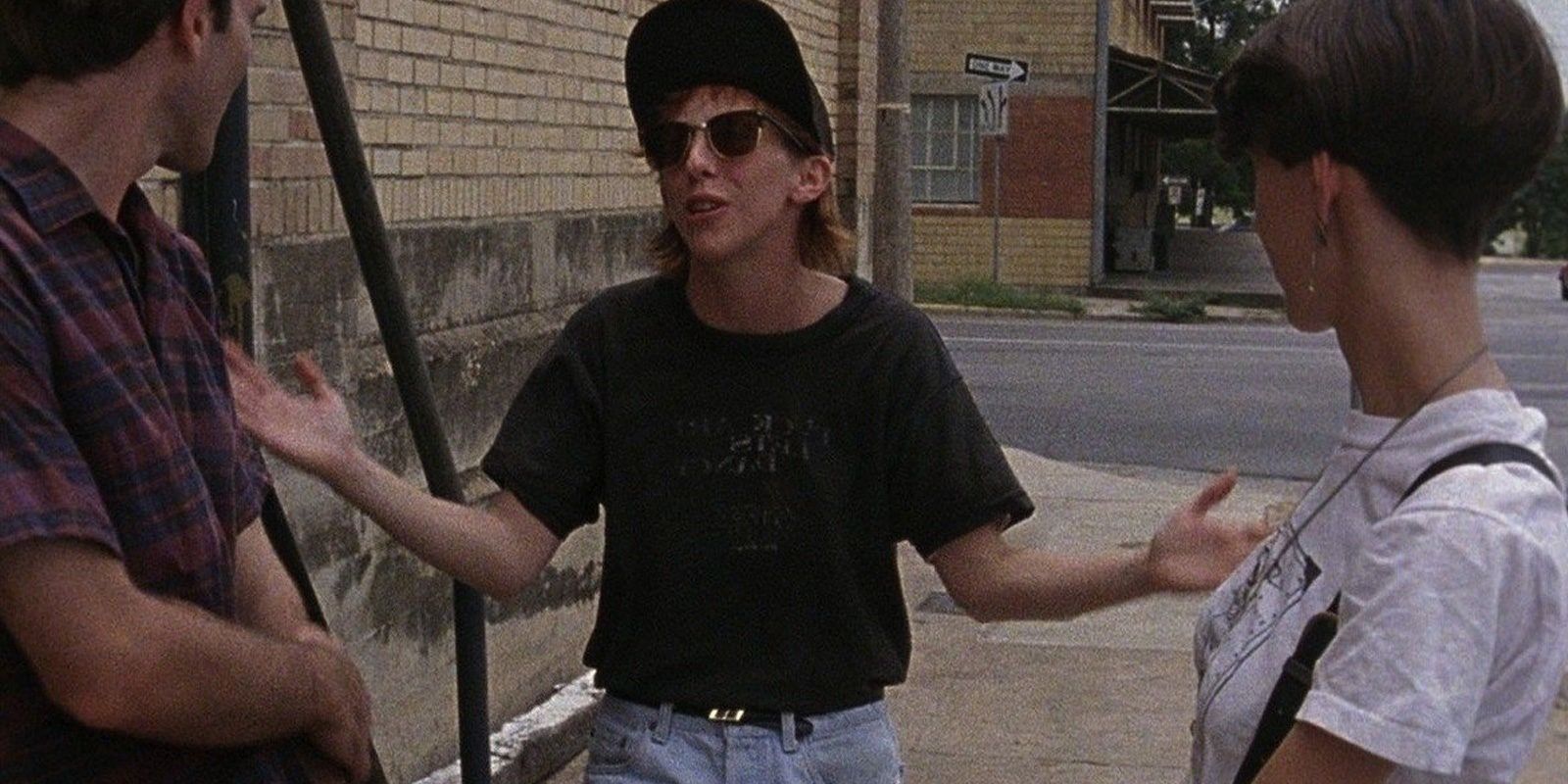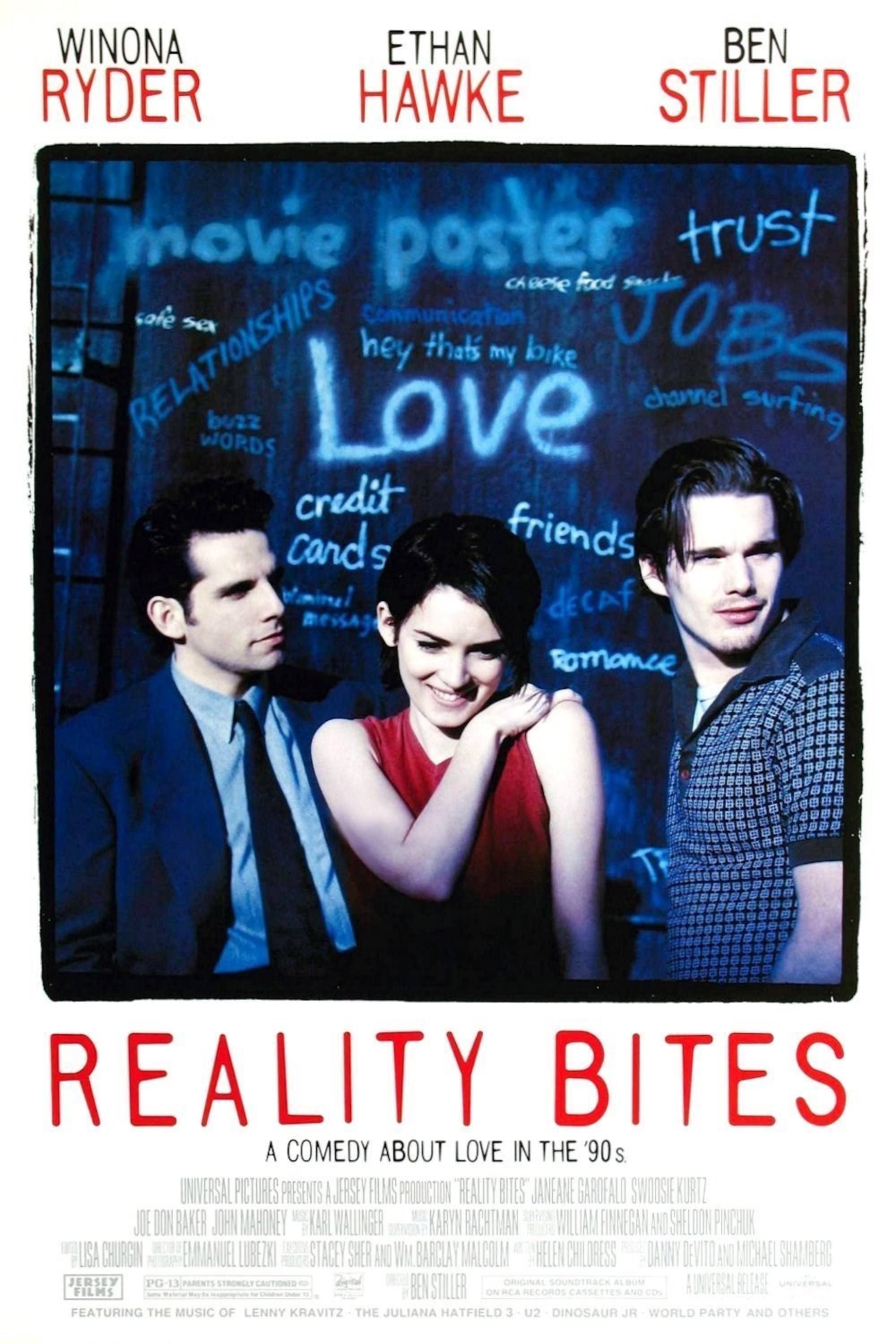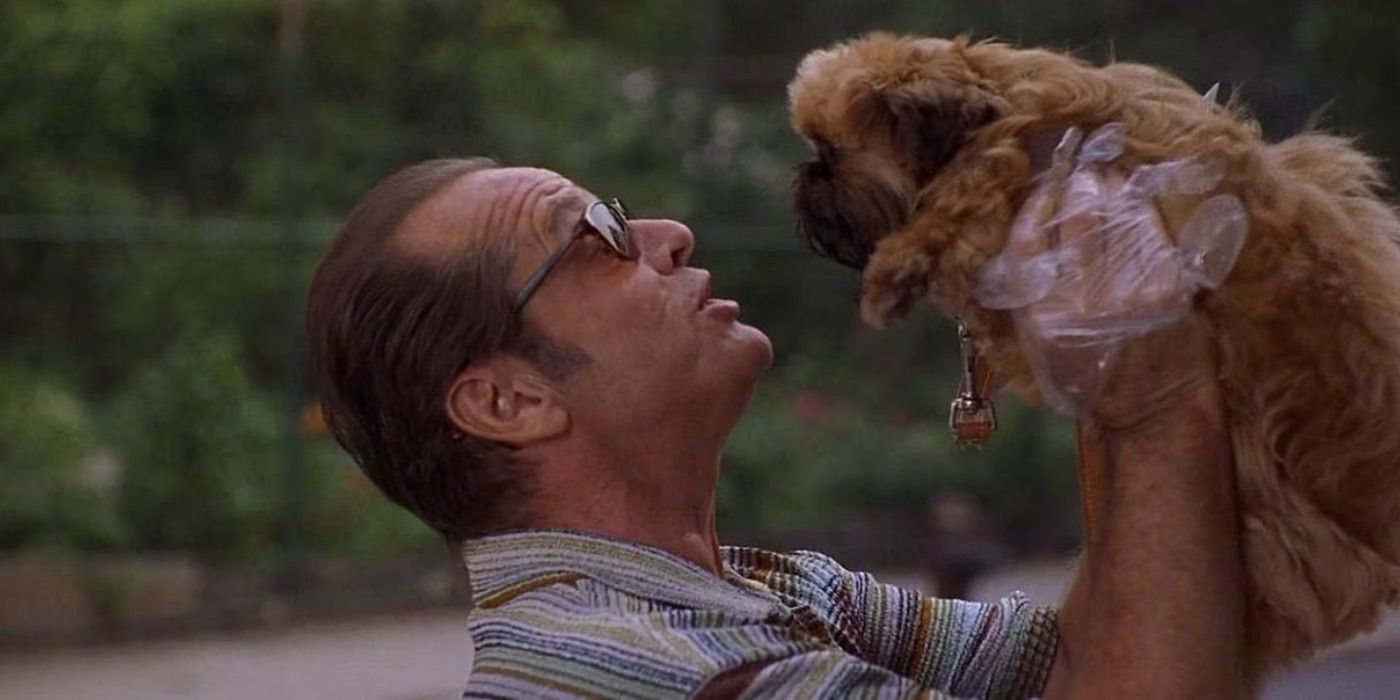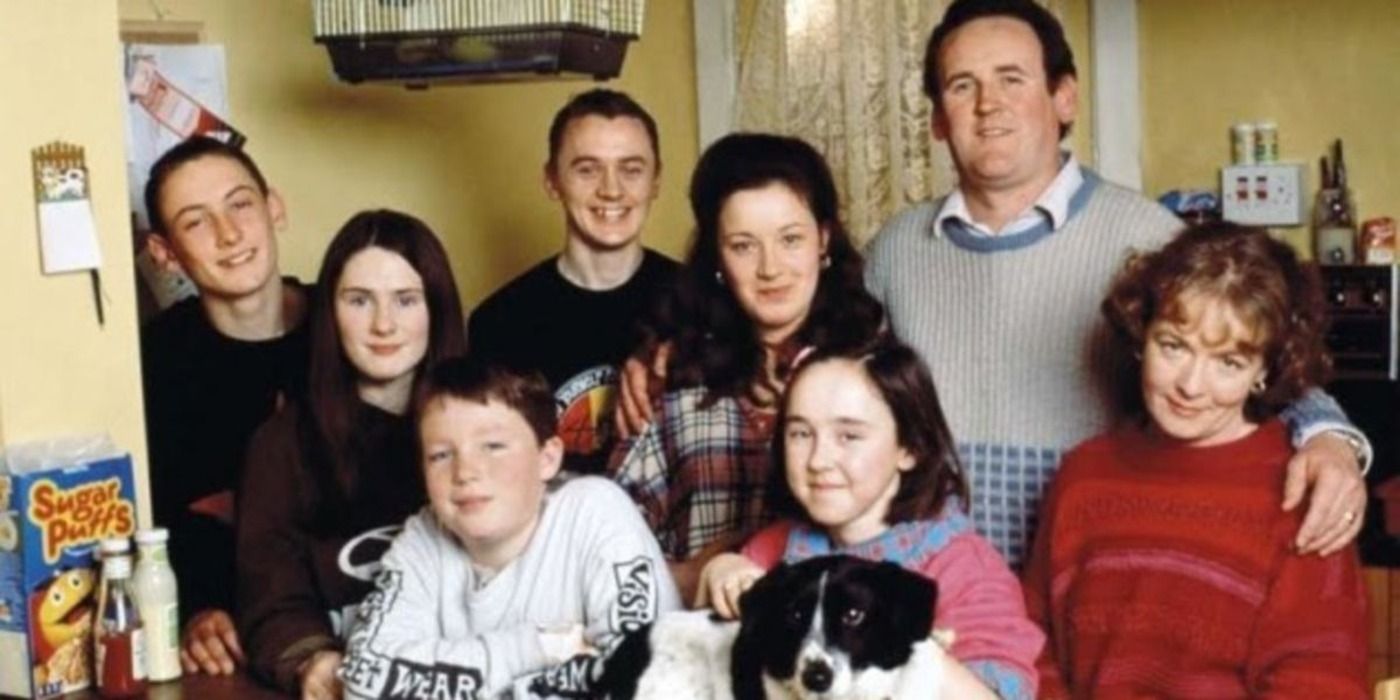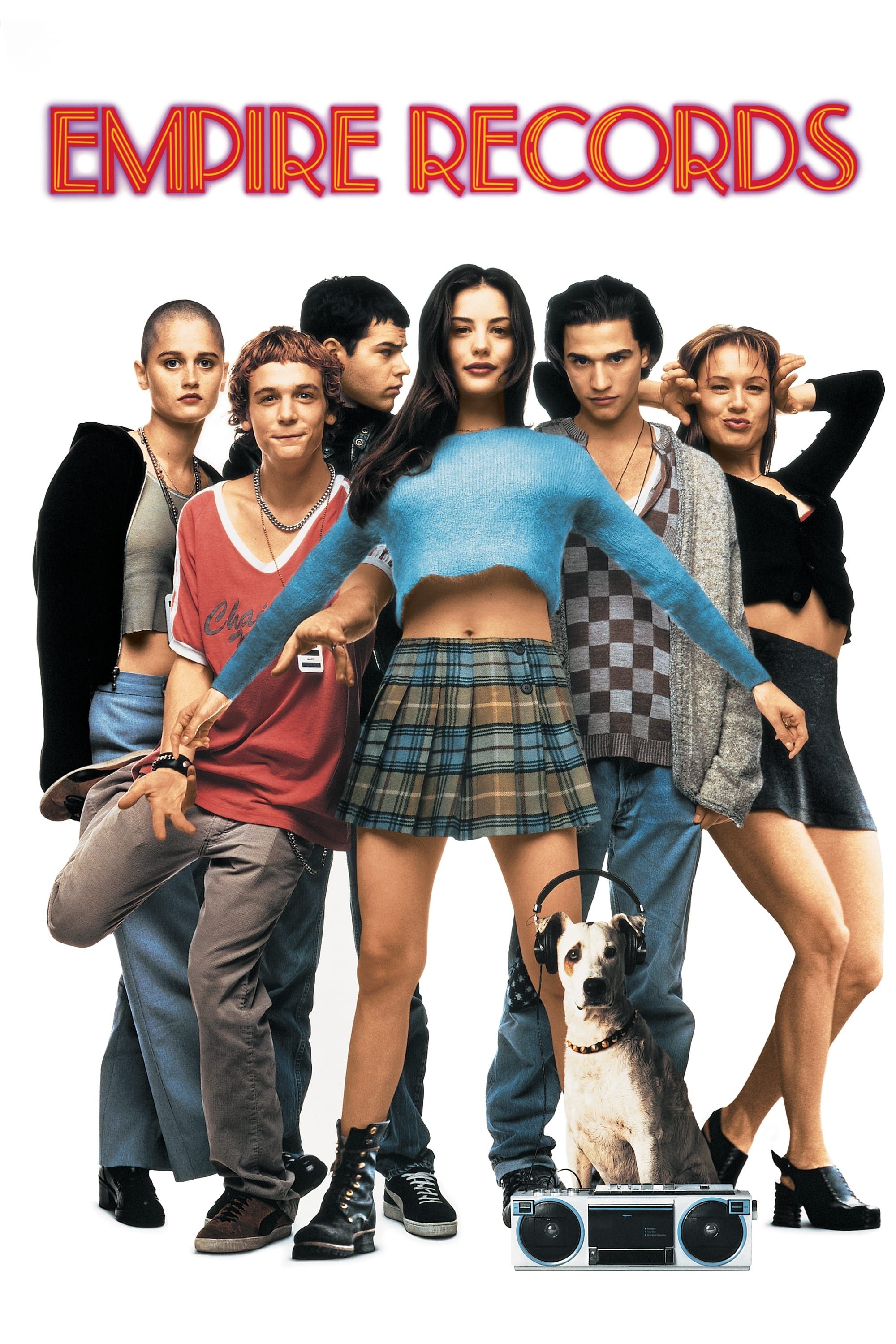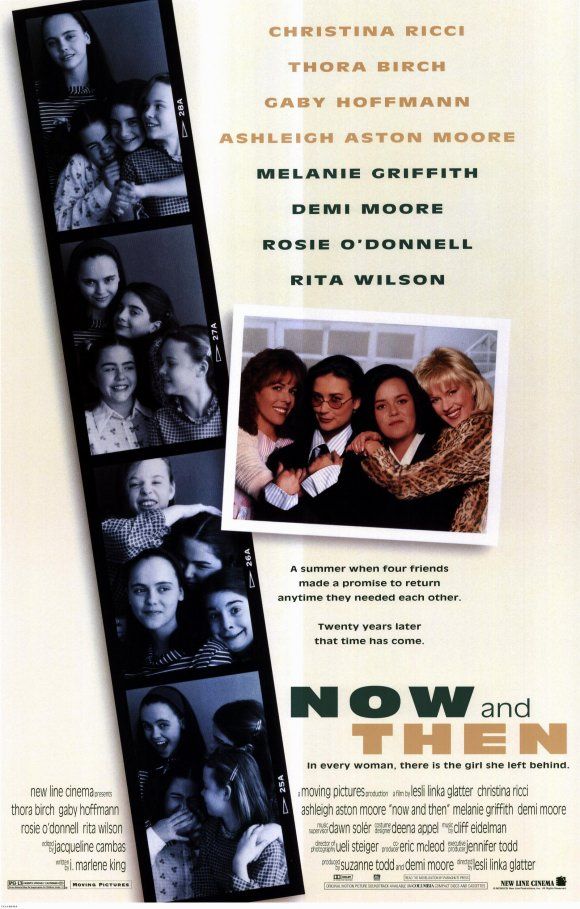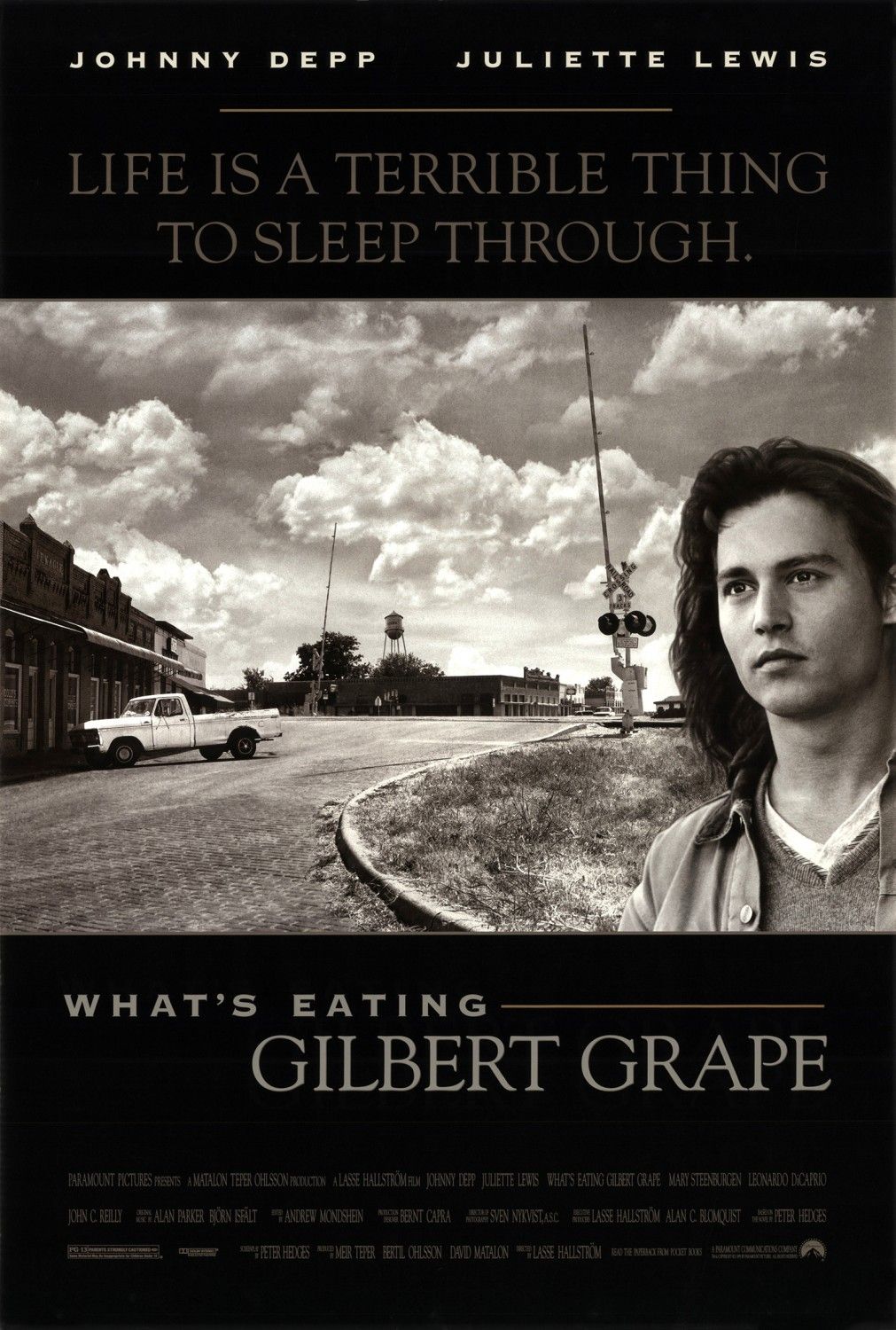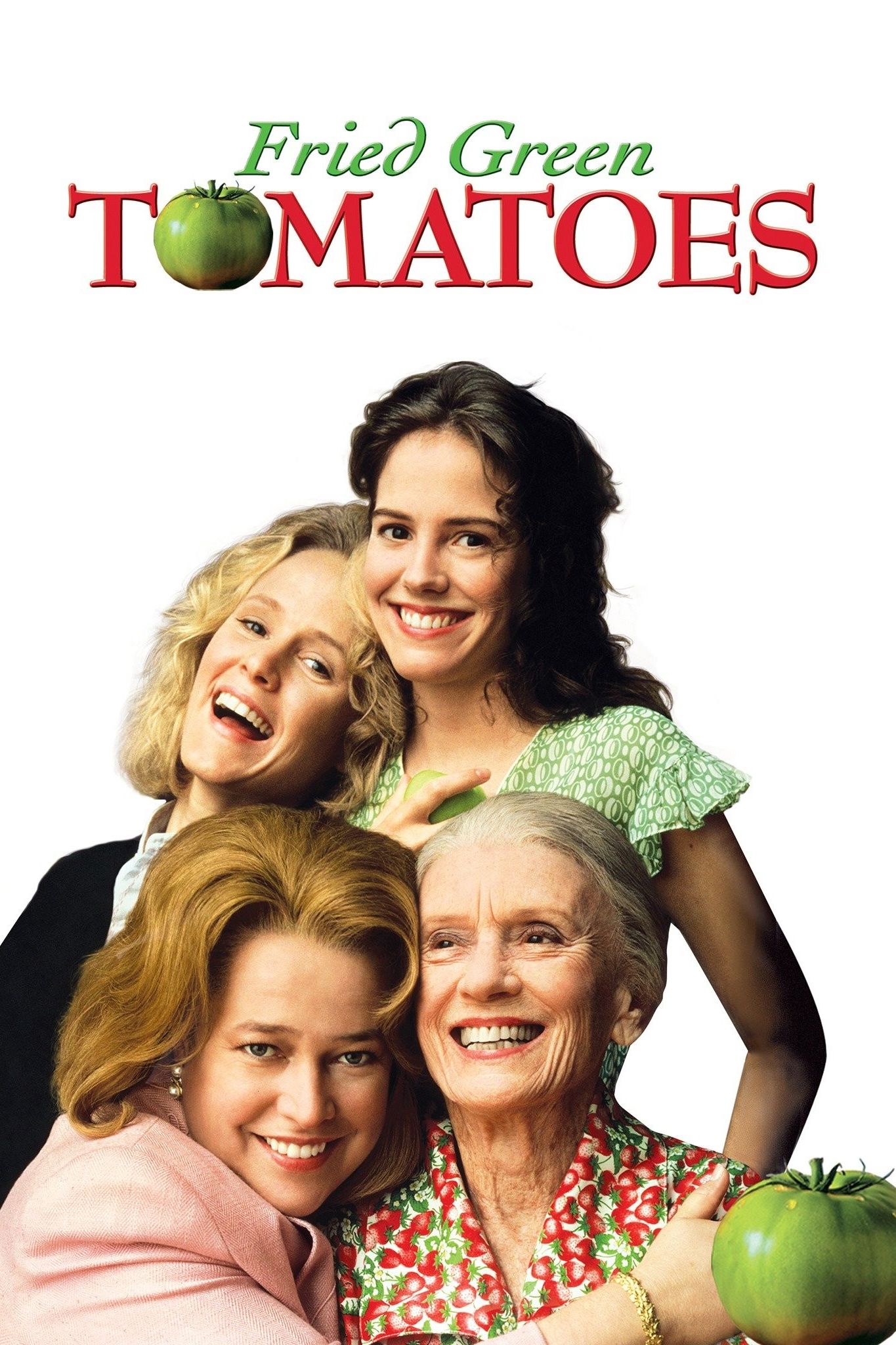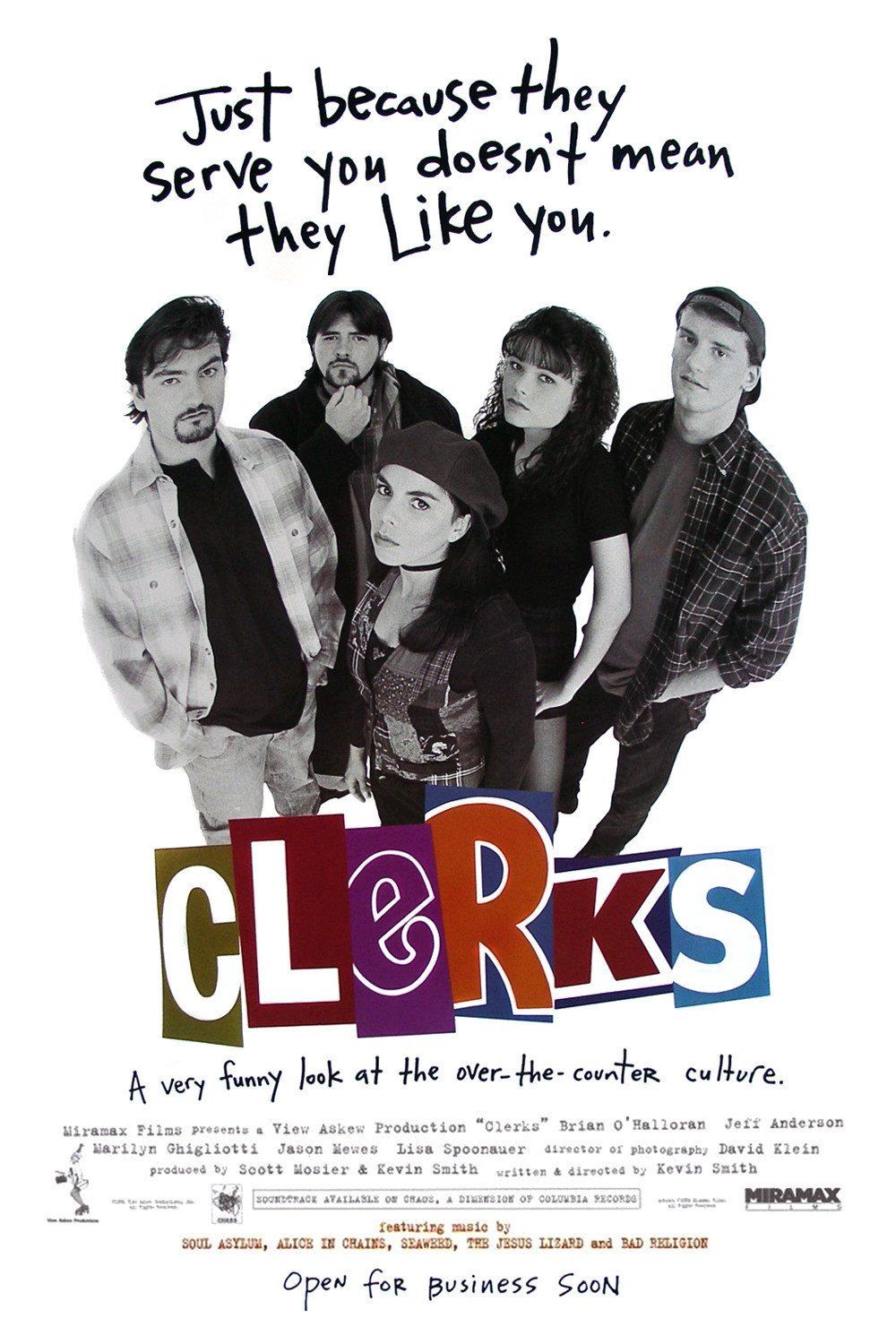Plenty of slice-of-life movies from the 1990s stood out as these stories were grounded in well-developed characters, nuanced moments, and life circumstances that mimic the everyday happenings of that era. A slice-of-life movie is a film that gives time to the small, seemingly insignificant occurrences that make up day-to-day existence rather than focusing on grand, dramatic plot points. This was seen in 1990s cult classics that represent the slacker mentalities of wayward Generation X 20-somethings and heartfelt dramas focusing on the life histories of their characters.
Some of the biggest movie stars of the 1990s starred in powerful slice-of-life stories that captured the cultural zeitgeist of the last decade of the 20th century. As a decade of great change that came just before the technological revolution of widespread use of the internet, the more grounded nature of these movies captured a relatively recently bygone era that reflected that time’s social and cultural landscape. From independent releases by DIY directors to Oscar-winning performances from icons like Jack Nicholson, the 1990s were packed with incredible slice-of-life movies.
10 Slacker (1991)
Directed by Richard Linklater
Richard Linklater helped kickstart the independent film movement of the 1990s with the release of Slacker. Alongside Steven Soderbergh’s Sex, Lies, and Videotape, Slacker’s DIY attitude, which was primarily produced through funds gathered from Linklater’s family and friends (via Austin Chronicle), inspired other filmmakers to do the same and proved a director didn’t need a big studio behind them to get a movie made. Set over just one day, Slacker gave a slice-of-life insight into the experiences of an ensemble cast of local misfits and eccentrics in Austin, Texas.
As Slacker moved through the various conversations of mostly under-30 bohemians, it gave viewers a brief glimpse into their lifestyle without staying with one group for more than a few minutes. With the appearance of a UFO buff who insists the U.S. has been on the Moon since the 1950s and an elderly anarchist befriending the man trying to rob his house, Slacker mixed oddball humor with political and philosophical intrigue. While Slacker didn’t beat viewers over the head with its thematic depth, most characters’ feelings of social exclusion or political marginalization gave these vignettes an overarching narrative.
9 Reality Bites (1994)
Directed by Ben Stiller
The 1990s were the decades of the cynical, disenfranchised, and slacker members of Generation X, whose young people were influenced by the emergence of subcultures like punk, grunge, and independent filmmaking. One movie that truly showcased the wayward lives of recent college graduates during this time was Reality Bites, a slice-of-life rom-com featuring some of the most notable actors from this era. With Ben Stiller, Ethan Hawke, and Wionna Ryder, Reality Bites was a who’s who of the 1990s up-and-coming celebrities and a powerful depiction of young adults’ career and lifestyle challenges.
With Ryder as an aspiring videographer making a documentary about her roommates, the very premise of Reality Bites invited itself to provide insight into the day-to-day experiences of its down-and-out characters. From Troy’s (Hawke) aimless existence in minimum wage jobs to Vickie’s (Janeane Garofalo) string of one-night stands, Reality Bites showcased characters who struggled to find meaning in their work and relationships. While Stiller’s yuppie Michael represented someone with more direction in life, as he worked as an executive at an MTV-style channel called Your Face, it seemed every character in Reality Bites lacked something vital.
8 As Good As It Gets (1997)
Directed by James L. Brooks
Jack Nicholson and Helen Hunt won Best Actor and Best Actress Oscars for their incredible performances in As Good as It Gets. This slice-of-life rom-com felt like a breath of fresh air in the genre, as rather than focusing on some grand, outrageous narrative, it was more about the everyday interactions and character conflicts of its cast. This gave As Good as It Gets a more intimate feeling as viewers could connect more with the misanthropic OCD-suffering romance novelist Melvin Udall (Nicholson) and patient waitress Carol Connelly (Hunt), one of the few people who could tolerate his rude behavior.
As Good as It Gets prioritized character-driven storytelling as Melvin’s mental health struggles were contrasted with Carol’s difficulties in looking after her asthmatic son. With a narrative that was rooted in everyday conflicts and the emotional struggles of Melvin and Carol, As Good as It Gets offered an emotional connection that felt more authentic and believable to the audience. It’s no surprise that its lead performers earned Oscars and that As Good as It Gets was even nominated for Best Picture, as it was an astounding example of a slice-of-life story told well.
7 The Straight Story (1999)
Directed by David Lynch
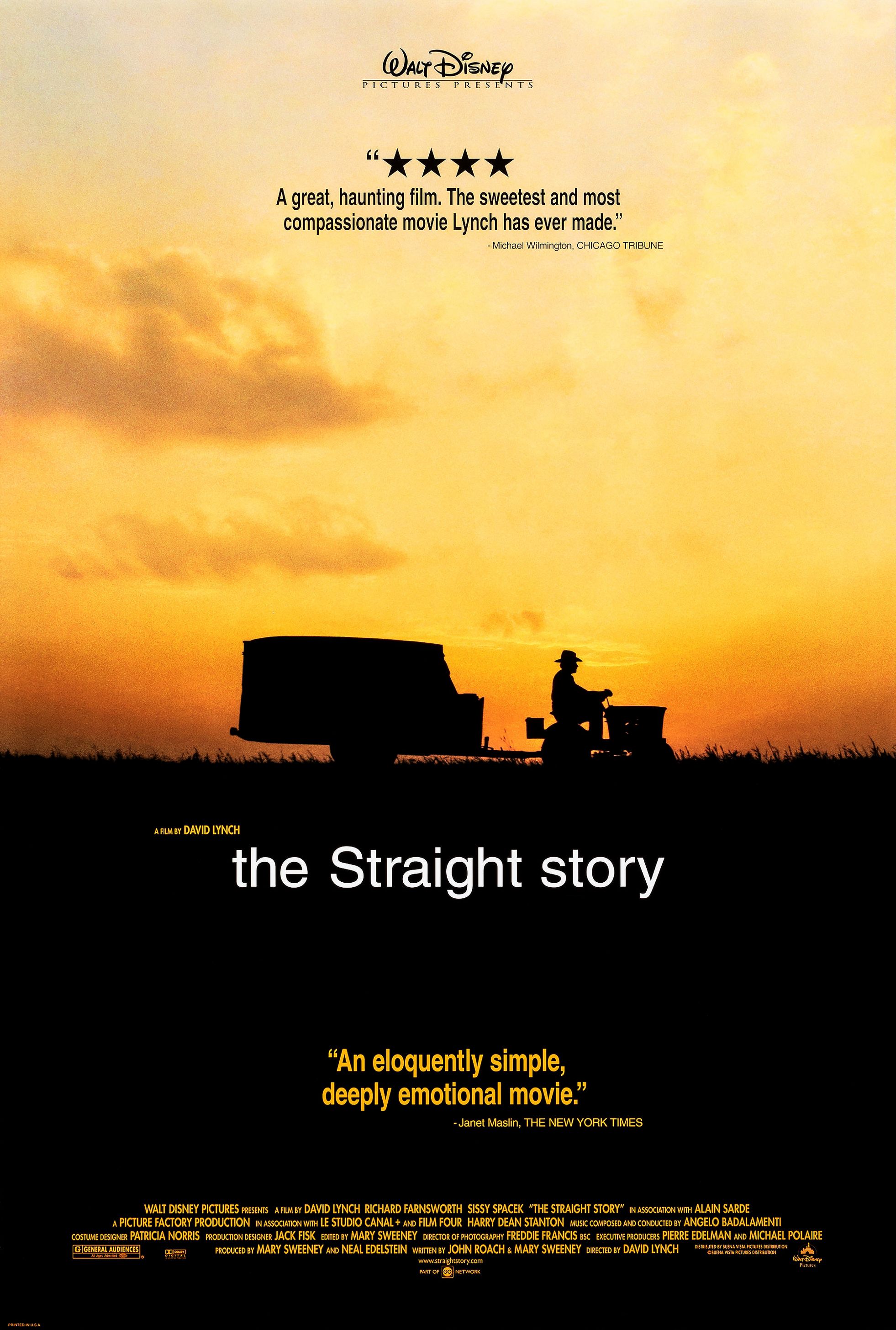
The Straight Story, directed by David Lynch, is a biographical film depicting Alvin Straight’s journey across the Midwest on a lawn mower to reconcile with his ailing brother. Richard Farnsworth stars as the elderly Alvin, joined by Sissy Spacek as his supportive daughter, Rose. Based on a true story, the film explores themes of family, perseverance, and redemption.
- Release Date
- November 3, 1999
- Writers
- Joan Roach , Mary Sweeney
- Cast
- Richard Farnsworth , Sissy Spacek , Jane Galloway Heitz , Joseph A. Carpenter , Donald Wiegert , Tracey Maloney , Dan Flannery , Jennifer Edwards-Hughes
While cult filmmaker David Lynch was known for his surreal and often dreamlike mysteries like Blue Velvet and Mulholland Drive, one of his most grounded movies was The Straight Story. This beautiful true story was a slice-of-life look at Alvin Straight’s (Richard Farnsworth) 1994 journey across Iowa and Wisconsin on a lawn mower. After hearing that his estranged brother had a stroke and was unable to travel, Alvin decided to undertake the 240-mile journey himself on a vehicle that drove at a maximum speed of five miles per hour.
As a meditative look at family, aging, and the passage of time, The Straight Story focused on the little moments in life and the assortment of characters and helpers that Alvin met along the way. As a beautiful piece of Americana, The Straight Story may at first look like Lynch’s most mainstream film, yet his idiosyncratic style was clear throughout. This was not just a story of Alvin’s journey through rural America but a contemplative and sentimental look at the many lives and unextraordinary existences that make up day-to-day life across the United States.
6 The Snapper (1993)
Directed by Stephen Frears
The Snapper was a cult classic Irish comedy focusing on a working-class Dublin family called the Curleys and their experiences after the daughter Sharon finds out she’s pregnant. Due to have a child with a man she loathed, The Snapper showcased Sharon’s refusal to tell her family the identity of the father, which causes drama with her parents, brothers, and even employers. The Snapper was part of a trilogy of movies adapted from the works of Roddy Doyle, which, along with The Commitments and The Van, highlighted the social and political culture of 1990s Ireland.
As a 20-year-old, unwed Irish woman, Sharon’s pregnancy became the talk of her tight-knit community. The family dynamics and everyday tensions of The Snapper’s domestic story center on ordinary people in a realistic situation. Colm Meaney gave a great performance as Sharon’s father, Des Curley, as his emotional outbursts around how his daughter’s actions embarrassed the family was in full swing. Most of all, The Snapper depicted community life and how Sharon still has a supporting system backing her up, despite the community’s incessant gossiping.
5 Empire Records (1995)
Directed by Allan Moyle
Music was a truly vital component of understanding life for young people during the 1990s, and nowhere was this better encapsulated than Empire Records. Set over just one day in Delaware independent record store, this slice-of-life story gave insight into the shop’s employees and their goal to earn enough money to stop the store from turning into a branch of Music Town, a large national chain. As the punks, hippies, and grungers of its story all come together during the highly eventful day, Empire Records embodied the anti-establishment values of its Generation X cast of characters.
With plenty of quirky, lighthearted humor, Empire Records took the tenets of 1980s teen movies and updated them with 1990s characters struggling to find meaning in their day-to-day retail existences. With a strong early performance from Renée Zellweger and as one of Liv Tyler’s first movies, Empire Records was populated with actors who would become much bigger names as the decade proceeded. As a slice-of-life look at alternative youth culture during the 1990s, it’s no surprise Empire Records has become a cult classic.
4 Now And Then (1995)
Directed by Lesli Linka Glatter
As its title suggested, Now and Then took place in two timelines as four grown women in 1995 recounted a pivotal summer they shared together as teens in 1970. Although Now and Then received poor reviews upon release, it did well at the box office and has since earned cult status for its powerful depiction of girlhood and female friendships. With a talented cast that included Christina Ricci, Rosie O’Donnell, Demi Moore, and Rita Wilson, Now and Then played out like a female-centered answer to the 1980s coming-of-age classic Stand By Me.
Now and Then stood out among other female-centered coming-of-age stories for the depth with which it showcased the often neglected complexities of girlhood. With fully realized characters, Now and Then featured a main cast grappling with themes of grief, death, growing up, and friendship. As a slice-of-life story about an important moment in these girls’ lives, Now and Then powerfully conveyed both the excitement and resistance of young girls on the precipice of becoming young women.
3 What’s Eating Gilbert Grape? (1993)
Directed by Lasse Hallström
At just 19 years old, Leonardo DiCaprio earned his first Academy Award nomination for his performance in What’s Eating Gilbert Grape? This slice-of-life coming-of-age story starred Johnny Depp as the titular Gilbert Grape and DiCaprio as his mentally disabled younger brother in a rural story of domestic responsibility. With a morbidly obese mother and a sibling who needed constant attention, What’s Eating Gilbert Grape? highlighted the day-to-day complexities of being the one person forced to carry the weight of an entire family on their shoulders.
As a sentimental story categorized by everyday struggles, What’s Eating Gilbert Grape? was particularly effective due to the sheer power of its performances. DiCaprio particularly deserved praise for his Oscar-worthy performance, although it would be decades before he finally earned the elusive award for his performance in The Revenant in 2015. By giving a bird’s-eye view into the complex dynamics of a struggling family, What’s Eating Gilbert Grape? was a realistic and poignant slice-of-life story.
2 Fried Green Tomatoes (1991)
Directed by Jon Avnet
By focusing on the small, relatable moments that shape a life, Fried Green Tomatoes stood out as a deeply moving slice-of-life story about the friendship between a dissatisfied housewife and an 82-year-old widow in 1980s Birmingham, Alabama. Based on Fannie Flagg’s 1987 novel Fried Green Tomatoes at the Whistle Stop Cafe, this comedy-drama was led by two extraordinary performances from previous Oscar winners, Kathy Bates and Jessica Tandy. Through flashbacks, Fried Green Tomatoes depicts the heartfelt beauty in day-to-day occurrences and the complex relationships that develop through everyday interactions.
As a well-acted and sharply written story, Fried Green Tomatoes overcame its predictable narrative by focusing on the real emotion at the heart of its story. With a focus on the small sadnesses that life brings as characters die and leave their loved ones behind, Fried Green Tomatoes showcased that movies don’t need big action set pieces to be emotionally resonant. As a charming story that was not afraid to deal with dark themes, Fried Green Tomatoes invited viewers to connect deeply with its well-rounded characters.
1 Clerks (1994)
Directed by Kevin Smith
Clerks was the definitive slice-of-life movie of the 1990s, as it combined the day-to-day frustrations of retail employment with the slacker mentality of Generation Xers during this era. By focusing one day in the lives of the Quick Stop convenience store employees Dante Hicks (Brian O’Halloran) and Randall Graves (Jeff Anderson), Clerks captured the frustration of retail work as they encountered embittered customers, dealt with personal crises, and begrudgingly accepted the presence of the drug dealing duo Jay and Silent Bob who loiter outside their store.
With a clever script packed with quotable moments, Clerks signaled Kevin Smith as an important new voice in indie cinema as he financed the film himself by maxing out multiple credit cards (via Collider.) While Clerks acted as the inception point for a sprawling cinematic universe called Viewaskew, this slice-of-life movie was originally planned as a young director and former convenience store clerk’s autobiographical showcase of his experiences and unique sense of humor. A true cult classic, Clerks was a landmark release in independent filmmaking that influenced countless dialogue-heavy slice-of-life comedies that came after it.
Sources: Austin Chronicle, Collider
